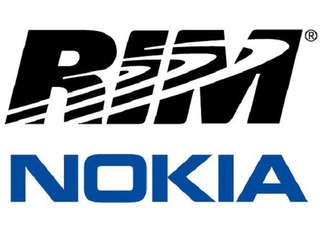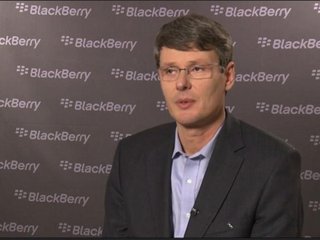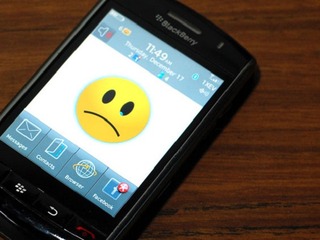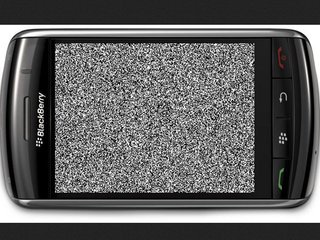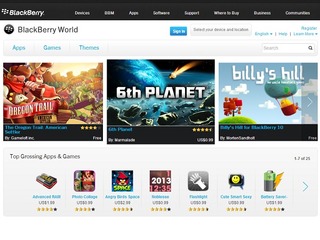Digital health funding declines for the third year in a row
AI-enabled digital health startups raised $3.7B, 37% of total funding for the sector
Read more...
BlackBerry developer Research In Motion, has been doing just about everything imaginable to get itself back in the game this year. It has tried renaming its app store, as well as releasing new products, and actually changing the entire name of the company to BlackBerry!
But the company suffered a major setback last week when Home Depot confirmed that was planning to stop supplying store managers and corporate employees with Blackberry phones.
As a result, BlackBerry stock dropped 4.61% Monday, ending trading at $15.73 a share.
Home Depot will instead be giving employees the iPhone 4S. The move by Home Depot will affect around 10,000 BlackBerry phones currently in use by Home Depot employees, but will not affect the 60,000 or so Motorola smartphones that are currently in use.
"I can confirm that we're replacing our current base of BlackBerry technology with iPhone. This includes about 10,000 units currently used by members of our management team and does not replace the mobile devices in our stores," Stephen Holmes, spokesman for Home Depot, told VatorNews.
Home Depot, which says that it is the world's largest home improvement retailer, as well as the fifth largest retailer in the world, earned $947 million in profit, on $18.13 billion in revenue, in its most recently reported quarter.
The news of Home Depot dropping Blackberry was first reported by Apple Insider Friday.
Blackberry's rebranding effort
2012 was anything but a good year for the Blackberry brand, and the company has taken numerous steps this year to try to rebrand itself for the future.
In July, RIM shocked many with its horrendous quarterly report - as in, it was worse than it normally is. Revenue was down 33% to $2.8 billion in Q1 from $4.2 billion the previous quarter and $4.9 billion in Q1 2012. RIM shipped 7.8 million Blackberry phones and only 260,000 Playbook tablets. The company announced its plans to ax 5,000 employees, and the nail in the coffin: its critical Blackberry 10 smartphones won’t be released until early 2013.
The company, which once had 43% of the smartphone market share, no longer even makes the top five. A report from ad network Chitika showed that RIM devices (including the Playbook tablet) have seen a usage drop of 25% in the last year. The devices now only account for 1% of all mobile traffic.
While CEO Thorstein Heins insisted that his company is doing fine, telling reporters, “There’s nothing wrong with the company as it exists right now,” it even came out that RIM is so strapped for cash that it is going to sell its corporate jet just to make $6 million.
RIM ended the year being forced to pay $65 million to Nokia over patent disputes.
So far, RIM has spent all six weeks of 2013 focusing on rebranding itself. First, in January, the company announced that it would be renaming its app store BlackBerry World from the previous name of BlackBerry App world.
The dropping of "apps" from the name of its app store is meant to reflect RIM's growing list of media content. In September, at the BlackBerry Jam Americas conference, RIM announced that it would be adding new types on content, including music and videos. This, according to RIM, will make it the "one-stop shop for all of your mobile entertainment needs."
Then, a week later, RIM made a much bigger announcement: it was changing its name from Research In Motion to BlackBerry.
The name change coincided with the unveiling of BlackBerry 10 and two new BlackBerry devices,
Despite all of its efforts to rebrand, none of them will do any good, though, if corporations that supply the phone to employees, no longer have confidence in it. The company has already said that it backing off consumer efforts, in favor of focusing on enterprise. Losing big corporations that supply the phone to their employees would be catastrophic for BlackBerry.
Blackberry could not be reached for comment.
(Image source: https://www.ihelplounge.com)
AI-enabled digital health startups raised $3.7B, 37% of total funding for the sector
Read more...OXcan combines proteomics and artificial intelligence for early detection
Read more...Nearly $265B in claims are denied every year because of the way they're coded
Read more...